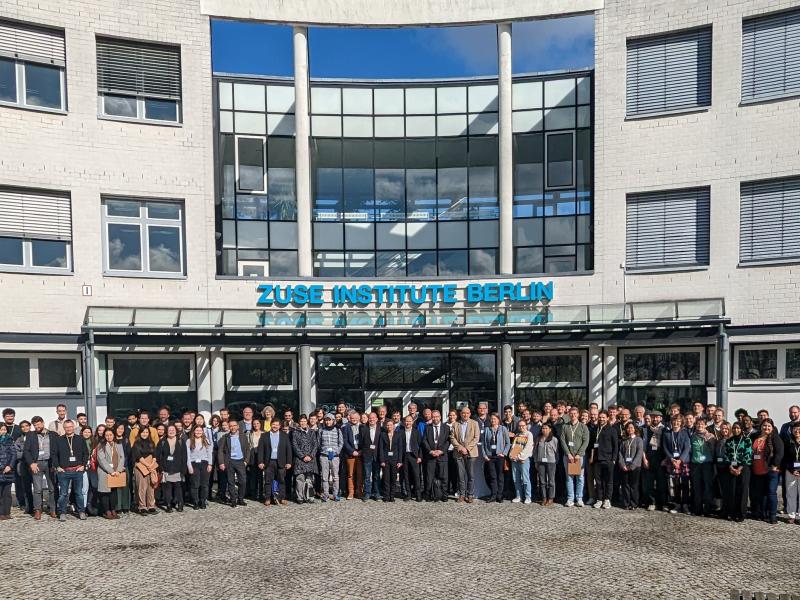The German Modeling Network for Severe Infectious Diseases (MONID) held its annual meeting at the Zuse Institute Berlin from March 15 to March 17. More than 100 international researchers from the BMBF-funded network convened to discuss the most recent discoveries and progress in the field.
The event offered a forum for the presentation of current research and findings, as well as keynote addresses from internationally renowned scientists. Frank Sandmann from the European Centre for Disease Prevention and Control (ECDC) delivered a keynote address on the European viewpoint on modeling the COVID-19 pandemic. Gergely Rost of the University of Szeged presented on the significance of modeling in Hungary (not only) during the pandemic.
The national MONID network is devoted to transdisciplinary and global solutions for major infectious diseases. At the event, the most recent research findings of network members on various infectious diseases, including COVID-19, were presented. The event also provided an opportunity to network and share ideas with international peers.
Prof. Christof Schütte, president of the Zuse Institute Berlin, underlined the significance of multidisciplinary collaboration and scientific interchange in the form of specialized networks in his opening address. Prof. Kai Nagel of the MODUS-COVID project - in which members of ZIB are working in - emphasized in his presentation the significance of high-quality data in disease modeling. "Due to today's technology and collaboration with numerous partners, we are able to construct extremely realistic scenarios and acquire timely insights into the dynamics of pandemics," said Nagel.
Dr. Berit Lange, Prof. Alexander Kuhlmann, and Prof. Rafael Mikolajczyk from the network's board of directors, expressed satisfaction with the event. They stated that the meeting demonstrated the importance of interdisciplinary collaboration to overcome global health concerns. They emphasized that MONID will continue to play an important role in future research and the fight against severe infectious diseases.
